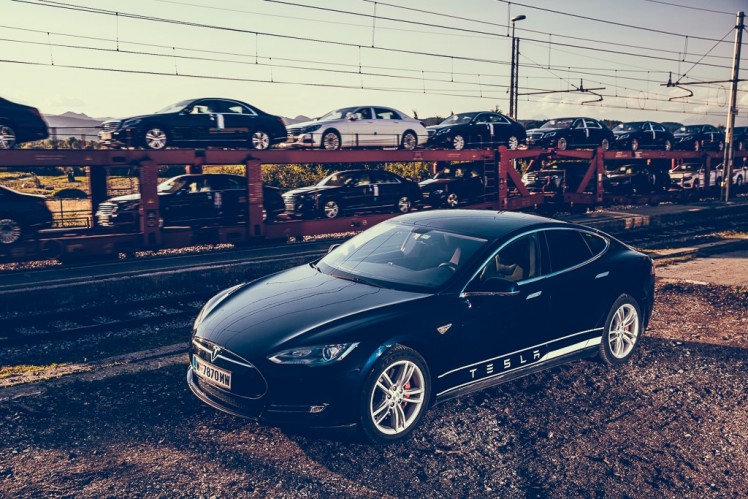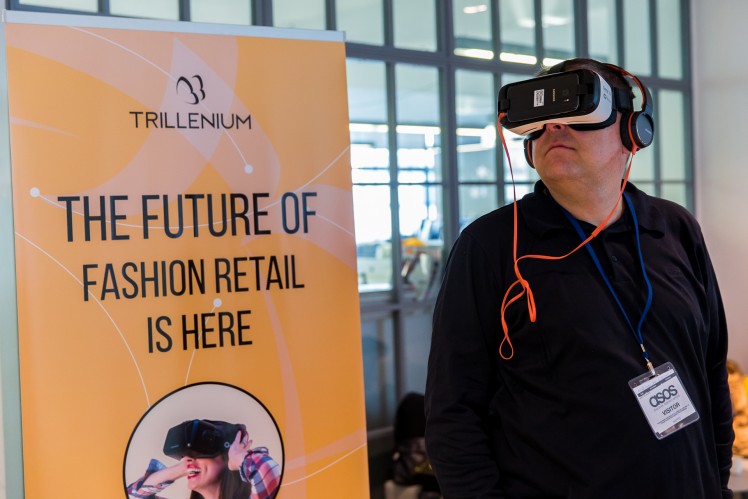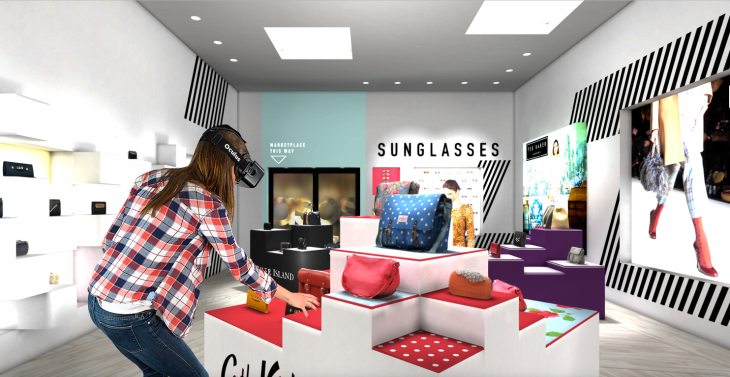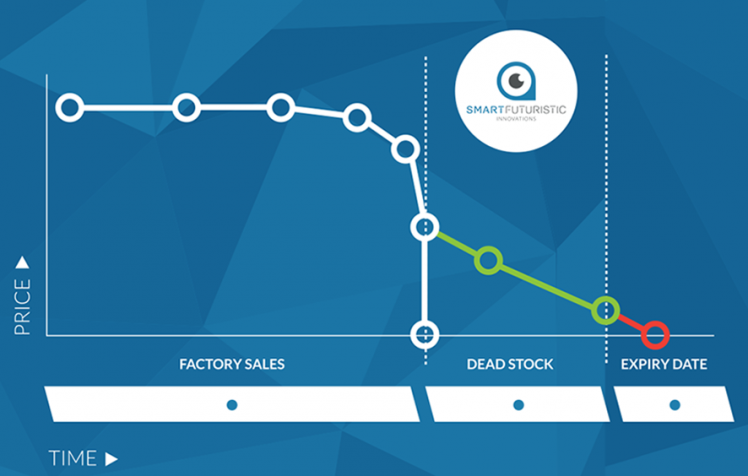How Slovenians Arrived in Silicon Valley
I spent the end of September in Silicon Valley. If the only thing you know about Google, Facebook, and Apple is that the first is a browser, the second a social network, and that the third makes smartphones and laptops, then you’re missing out. All these companies and a host of others are deeply involved in artificial intelligence, virtual reality, cars and more.
I left San Francisco airport and headed for San Jose by ordering an Uber. Uber cars have their own space at the airport where they pick up and drop off passengers, so as not to mingle with other taxi drivers. Even though traditional taxi drivers are on average almost twice as expensive, I think they still get at least ten times the number of passengers compared to Uber drivers. It stands to reason that only a small number of passengers, flying to Silicon Valley, actually have an Uber app on their smartphone, which is essential for calling one. Furthermore, I had the chance to see how traditional taxi drivers still dominated the space in front of the hotel and on the city roads. Uber is increasing its presence, but not nearly as fast as we would like to believe when we fret about taxi drivers losing their jobs overnight.
San Jose has transformed itself from a farming town into a global hub. Because the people wanted more. Because they wanted change.
All the largest car manufacturers in the world are moving parts of their R&D departments to Silicon Valley. Even though self-driving cars are already on the roads and it seems electric motors have emerged as clear winners, this is only the beginning. Will we still be buying cars or will we prefer to rent them? Will self-driving electric cars really be the only vehicles left on the road? What will they be like? What do the customers of the future want? What kind of solutions can manufacturers offer? This is why Silicon Valley is abuzz. Everyone is looking for the best user experience and computer software to run the new cars. Even the Chinese have come here. In a major way. They are buying up enormous areas for their companies and for their testing grounds. They went all out and bought NASA’s hangers. It is clear they want to seize the opportunity and become the automotive superpower of the future, when petrol and diesel internal combustion engines will no longer dominate the roads.
The world is not only changed by new technologies, but also by each passing generation. Partially because they don’t particularly like the things their parents thought most important, and partially because of a sense of urgency. They need to be concerned with how they’ll live in 70 or 80 years; they know that if nothing changes, their future holds a planet covered in at least two meters of plastic bottles where water and air are only available on prescription. They are aware they need to improve the way they exploit natural resources, which is why they find sharing things, when they don’t need to own them, second nature. The sharing economy has also caught on in more conservative business ventures, such as lending office space. WeWork is aiming to lend out approximately a million workspaces around the world by the end of 2017. As of late 2014, they had spaces at 27 locations. By the end of 2015, the number rose to 54. They were even awarded the title Most Innovative Company of the Year. They are currently opening seven to eight new locations per month. Anyone who rents a space with them becomes a member of a club. People from various companies who lease workbenches from them, socialize and help one another. The incredible melting pot of freelancers, start-ups, and small-business owners is already being further expanded by employees from large companies, like Pepsi Cola and Samsung. They want their workers to learn the business culture of the new generations, find potential co-workers and business partners.
At the grand opening of the – for now – fully Slovenian-owned ABC Global Home company in San Jose, a representative of the city, who visited Maribor 24 years ago, also said a few words. Her duty back then was to teach us how to transition from socialism to a market economy. She was visibly happy about how far we’ve come, that we came to her country and her city, and that we in turn can do something for them. She took the fact that we made it as something for granted. She was no longer our teacher, instead welcoming us as equal partners. After all, when she was born, her native San Jose was also not much more than a farming town. Today, it is one of the ten largest cities in the US and the capital of Silicon Valley. The rapid growth of high tech companies and the development of the electronics industry turned it from a farming town into a global hub at the turn of the millennium.
Because the people wanted more. Because they wanted change. Because they invested themselves, their strength, visions, energy and passion. There’s nothing you can’t accomplish with that! With only that!
First published in MANAGER FINANCE 13.10.2016 http://manager.finance.si/8850122/Aljo%C5%A1a-Domijan-Kako-smo-Slovenci-pri%C5%A1li-v-Silicijevo-dolino
Photo: Igor Domijan, Aguatera
Too Fast? It Will Go Even Faster
The rapid development of information technology and telecommunications over the past thirty years has been in fact a benefit of some sort. Whatever activity one was engaged in, be it in the public or private sector, an investment in some computer equipment, software applications and user training made it possible to optimize performance, reduce costs, improve quality and of course increase profit.
Naturally, some did this better than others. Slovenia and a lot of countries did not make the best of this opportunity and went down a few places on the global competitiveness scale. Nothing really dramatic. The cards on the global corporation map have shuffled even more. Apple, Google, Microsoft and Facebook became by far the largest companies in terms of market value in the world. Once the flagship, automotive industry, which is very close to and liked by the Slovenian population as well as perceived as an opportunity for economic growth, slid to somewhere below rank 20 on global list. An illustration that we are experiencing tectonic changes: US Ford and General Motors together are worth only slightly more than for instance Nike, McDonalds or Starbucks and much less than Coca Cola, Pepsi or P&G. All combined are worth less than Apple.
The company that will be the biggest in 20 years has yet to be founded. In the ABC Accelerator I have been following the growth of a new generation of successful companies practically in real time, seeing today that in a few years we will be buying differently, doing business with banks differently and communicating with the public administration differently, and we will have different relations with the electricity, water and heating suppliers … we will travel differently, select hotels differently, go to restaurants differently, undergo treatment differently, and so on. We will allocate most of the money to things we do not know yet today. The key to success is no longer growth and optimization. The companies and countries that don’t invest in novelties will fail completely, regardless of how successful they are and how much profit they make today. I am not talking about just one or a few changes. Even a country like Slovenia will need thousands.
I was surprised by the Chinese at the end of July. Theirs was the first country in the world to introduce online ride-booking regulations. The market with more than a billion users gave the green light to Uber and similar countries, making it clear they need not fear obstacles and pitfalls in winning the Chinese market. This is far from the European practice where mayors of individual towns decide about Uber, AirBnB and similar countries.
I was also surprised by Tesla. The Gigafactory producing batteries needed for its cars was set up in Nevada. At home! This is an excellent example of how innovative companies create jobs without looking for a cheaper labour force around the world. It is worth noting that in less than a year the factory will double the global battery output, only to quadruple it at a later stage, thus filling all Tesla 3 orders. Another trend that will have to be taken into account: foreign companies will no longer be able to create jobs with tax and similar benefits. A slightly different view of the entire matter reveals that investing in domestic knowledge is the only reliable path to a welfare state.
Let us have a look at how Romania boosted its high-tech industry. It reduced taxes, simplified accounting and made it easier to get credit. In a few months it succeeded in reducing unemployment, having recorded one of the lowest unemployment rates among the youth in the EU, ranking second in terms of GDP growth among the EU Member States and looks to have a good future. IT companies account for 6.1% of the country’s GDP and are expected to achieve 10% in 2017. It is important that Adobe, Microsoft, IBM, Intel and Oracle are opening their companies in Budapest because the favourable business conditions there also apply to all, both domestic entrepreneurs and global corporations, thus simplifying the opening of such companies and ensuring the conditions apply to the long-term.
And which country has witnessed the fastest growing GDP? Ireland, which has also reduced corporate income tax, attracted investors and boosted GDP to an incredible 26.3%.
The Russians will become the first to invest in Hyperloop, a new train offered by Elon Musk (Tesla, SpaceX, PayPal, …), operating at a speed of up to 1,200 km per hour. The construction will start in Siberia so as to connect Moscow and Beijing. Great Britain proved to be the most advanced when it comes to drone legislation. Amazon.com will therefore launch drone delivery there.
Who knows what will happen when the door to virtual reality opens really wide!
Original in Slovene Manager.Finance.si/8848155/Aljosa-Domijan-Tehnologija-drvi-kje-bomo-prvi-mi
First steps in VR-commerce
Excellent experience with Trillenium at Asos in London. VR is next big step in the way we will use our computers, smartphones. Glad to be at least small part of it.
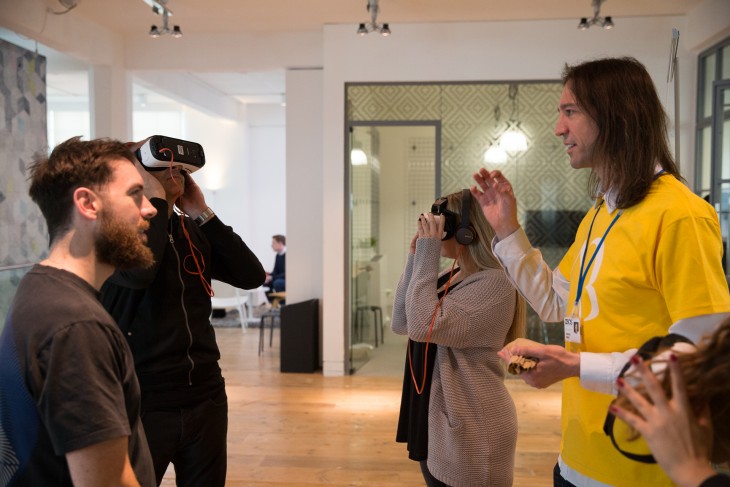

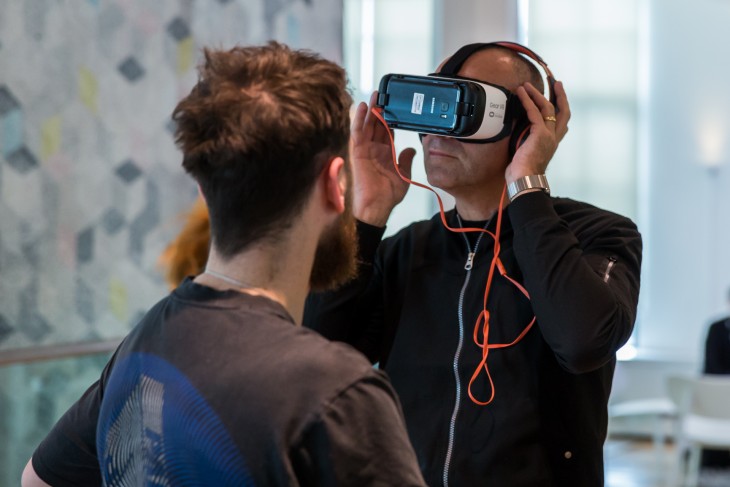
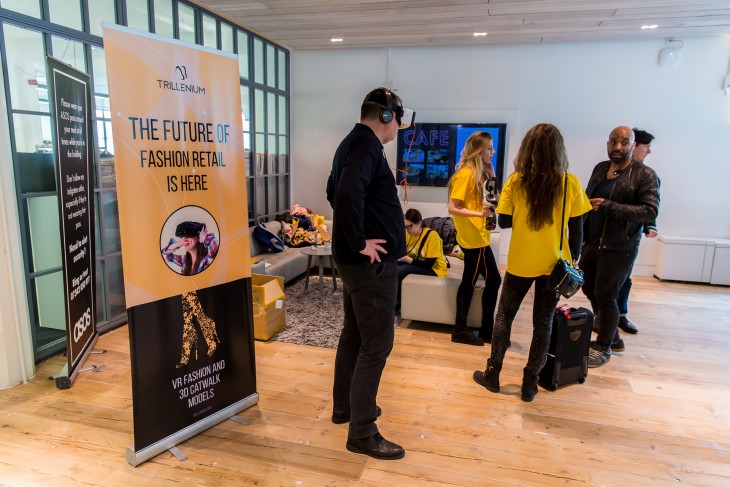

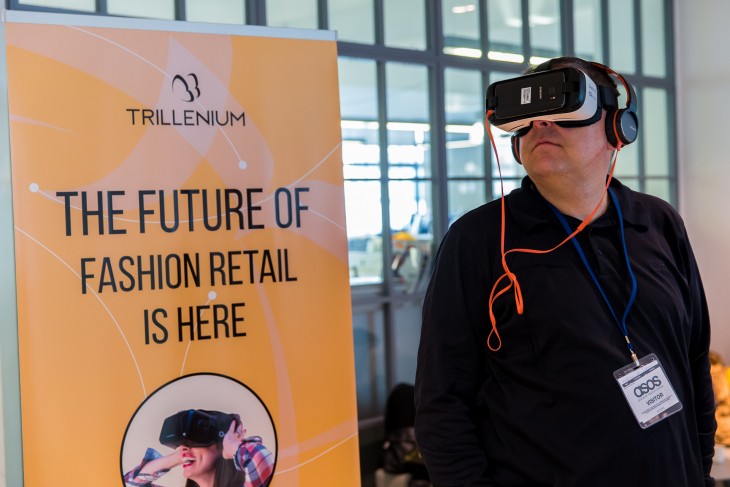
Billions for future fashion brands
Who will be the largest and most influential player in the fashion industry? If you immediately thought of Chanel, Armani, Prada, Dior, Burberry or other high-end brands, or retailers such as H&M or Zara, then it is clear that you are out of the online fashion loop.
Downtrend case
You should find similar story in all countries in which companies pay too little attention to online. The fact is that the internet is an ever-shifting market and trends are bound to turn around eventually; in fact, in the past weeks my discussion partners from the Slovenian fashion industry tried to convince me that lately customers are increasingly seeking out brick and mortar stores. They supported this claim with the fact that the online store Stilago recently shut down after five years of operations, and that from 10 July Fashion Days will also terminate its presence in Slovenia due to some undisclosed business changes. Being the indefatigable online sales promoter that I am, I am concerned by such a turn of events, because this will lead to a temporary standstill of the fashion offering on Slovenian internet sites.
The big players apparently don’t get it. Sportina Bled, which in 2009 generated sales of 77 million euro and once spearheaded the clothing retail industry in the country, generated sales of only 40 million euro in 2014. Instead, the top position went to Magistrat International (Galerija Emporium owner) which has seen a gradual decline of sales from 2011, too. (the 2014 figures have not yet been published). However, since the people of Slovenia still wear clothes while going about their daily business, it is clear that a shopping shift must have taken place: they now shop at online retailers from abroad. I do not think it is good idea to sit around, waiting for the tide to turn and for the customers to return to conventional stores.
Global growth
There are three notable European companies competing on the global fashion market: First there is the Germany-based Rocket Internet Group, the second is the British Asos and the third the Italy-based Yoox which has just recently acquired the fourth competitor Net-A-Porter. It looks like in 2016 they will be joined by Style.com, which is currently a website featuring fashion photography and fashion articles, and owned by the Conde Nast company which publishes the famous Vogue – not exactly a fashion rookie, right?
These online retailers reported that their sales figures have skyrocketed and apparently none of them have problems coming up with the capital necessary for the fast growth which is required to win this race.
On its website, Rocket Internet boldly declares that it sets out to become the largest global online platform outside the USA and China. The proof that this statement is more than just wishful thinking is their spin-off company Zalando – the largest fashion item retailer in Europe. In 2014 Zalando recorded a jump from 1.7 billion euro to 2.2 billion euro, for the first time wrapping up the business year with a healthy profit of 47 million euro. The company began its sales operations in 2008 in Germany, and currently runs subsidiaries in 13 European countries, its total worth valued at 7.7 billion euro. Rocket Internet is the lead shareholder in the Global Fashion Group which recently announced that it secured 150 million euro in new funding to purchase the Brazilian online retailers Kanui and Tricae.
Yoox too is aware that there is a market to be conquered beyond Europe. After acquiring Net-a-Porter, the company expects large growth in China which is said to become one of their top ten markets already this year. In 2014, 24 million visitors per month generated sales in the amount of 1.3 billion euro. Combining fashion and technology, the retail giant is valued at 1.8 billion euro which is not much considering that Yoox and Net-a-Porter were among the first online fashion stores around.
But I guess there is more to it than just business results. In 2014, Asos generated a little less than 1 billion euro in sales, driving its value to around 7 billion at the beginning of this year. Later it dropped to 3 billion and currently stands at 4 billion euro. Last year the growing strength of the British pound made Asos less competitive on the Russian and Australian market. This led to a drop in sales and lower prices in turn affected the sales performance. Even though online retailer Asos boasts of cultivating shoppers with high customer loyalty, the company quickly realized that the modern shopper is not prepared to choose loyalty over price.
Making room for new players
There is a large gap in online fashion which should be filled by start-up companies from all regions.
Styliff, a young company (for the time being still mostly Slovenian owned), designed an app for trying on garments found online before committing to a real purchase. More specifically: you can dress one of the photos that you previously saved on your smartphone in the desired garment. Naturally, you can share your experience with your friends, ask for their opinion and commit to a purchase only when you are absolutely sure that this is the outfit for you. But watch out – according to the first results shoppers buy and spend more when using this app! This new way of shopping for clothes therefore appeals to online retailers and has made the Styliff team feel more than welcome in retailers’ offices. Their brand offer now includes clothes by MaxMara, Diesel, Boss, Ralph Lauren, Moschino, DKNY, Alexander Wang and others. They are among the most successful and most observed companies in ABC Accelerator Smart Cities program with estimated value 3 to 4 million euros.
Another innovative way of shopping was showcased by Trillenium . A combination of virtual reality, computer games, mobile technology and 3D technology resulted in a virtual store where you don’t browse but instead walk around the online store, choosing items that catch your fancy. Immediately recognising the company’s potential, Asos pledged funds and commissioned the first virtual stores. This is a big step forward for the e-tailer without a single brick and mortar store. And perhaps this concept will be their competitive edge. Enough for Trillenium estimated value 3 million euros.
Now, who are you going to wear tomorrow?
When Food Waste Turns into a Global Business
When, a few months ago, I heard SmartFuturistic speak for the very first time, story immediately appealed to me. Too much food is being thrown away, and if this can be reduced, however slightly, using a mobile phone application (these are, after all, the only applications that are made nowadays), it is worth listening to the idea and, if need be, help out. Can it be turned into a business? Perhaps.
Instead of complaining about the fact that some sellers and producers waste up to 30% of food left on their shelves, SmartFuturistic thought about what they knew and what they could do to solve the problem. The solution is the smartFuturistic application that helps producers and retailers sell their stock. The closer the “best before” date, the harder it is to sell. And all that is left when the date expires is the cost of discarding the food.
This is where SmartFuturistic comes in: the new application allows producers to extend the time of sale, thereby reducing the possibility of having to throw the food away. The algorithm helps sellers find the appropriate buyers and, in the event of reaching a deal, the most appropriate means of transport. Though the application was initially meant to be a shortcut to selling to larger clients, such as schools, kindergartens, hospitals, hotels, zoos and similar enterprises and organisations, it quickly became apparent that the solution also establishes connections between sellers and buyers over greater distances. Using SmartFuturistic, a German company can, for instance, sell its excess beer to China.
At this point, everything goes into overdrive. The SmartFuturistic team becomes one of the first eight companies to receive funding from the business ABC Accelerator, develops at a blistering pace over a period of three months and draws the attention of a large number of international investors on the presentation day. Not even a fortnight later, they come in second at the TechCrunch start-up competition (more on http://techcrunch.com/2015/07/13/budapestcrunch-ii-was-a-great-success) in Budapest.
Thanks to their extensive know-how and excellent solution, the future is wide open for the enthusiastic, well-organised team of SmartFuturistic. Anyone thinking of making it in the business world would do well to remember that SmartFuturistic’s solution is coming on the market at the right time. (Timing is important!) Well, maybe a second too early, just enough to get ahead of the competition. Which never hurt anyone. But the fact is that the world wants and needs this solution. It does not need convincing. The United Nations have adopted a plan to cut food waste by half by 2030, thereby reducing the number of starving people around the world. A few weeks ago, France passed a law prohibiting supermarkets from throwing away food that is past its “best-before” date. But that is only part of the problem. A large portion of food rots in the fields. I am glad that this issue has become a topic of discussion among European politicians, with similar laws being drafted in other EU Members states as well. I am even more glad, however, that SmartFuturistic and their investors have recognised this as a business opportunity. That is the best guarantee for reducing food waste.
Banks are losing the payment transaction business
In a few years, payment transactions and trade will be completely different from what we are used to.
If you are not buying things online and are not aware of the unbelievable growth of online sales, or if paying with PayPal still seems like a novelty to you, then you are behind the times. You probably do not know that there are new online retail companies providing services which attract more and more payment transactions. Will you continue to read if I promise to list three new European service providers whose individual worth exceeds EUR 1 billion?
The breathtaking growth of areas including online sales, cloud technology and the standardisation of devices (which allows virtually the same software to run applications on smart phones, tablets, computers, POS terminals and other devices) has enabled new service providers to enter the market as soon as they spot an opportunity. This time we are not talking about the sort of enthusiast that the market has a hard time understanding and accepting. We are talking about unicorns. I am not being romantic – this is the actual name given to start-ups who quickly achieve a worth of EUR 1 billion or more. Their businesses are shamelessly large, but even so, in Europe we have at least three unicorns in this sector alone.
Doubling the Volume of Business Each Year
Adyen (www.adyen.com) provides a seamless solution for mobile, online and in-store transactions, which enables merchants to accept almost any type of payment anywhere in the world. The solution is used in the largest stores and kiosks as well. Having received a financial injection worth USD 250 million from General Atlantic, Index Ventures and Felicis Ventures in December 2014, the company’s worth has been assessed around EUR 1.4 billion.
Its Dutch founders, Pieter van der Does and Arnout Schuijff, like to emphasise that as of yet they are not considering selling their company. And why would they? They double the volume of their business each year. At the moment, the company operates in 187 countries and their services are used by 3,500 global service providers, including Facebook, Burberry and Spotify. They can wait a few more years and then retire with EUR 30–50 billion in their pockets.
A Business Larger than Alibaba
Powa (www.powa.com) is a British unicorn. In June 2014, the company bought their smaller competitor, the Hong Kong-based MPayMe, for USD 75 million and expanded their services in the field of mobile payments. Although the purchase price amounted to the company’s sales over 2.5 years, it has proven to be a worthwhile investment. Today, Powa is worth around EUR 2.5 billion. Dan Wagner likes to boast that his business is larger than Alibaba.
Powa combines mobile payment services with online commerce services. PowaWeb provides cloud-based commerce services. PowaPOS is an application that transforms a tablet or smart phone into a cash register. PowaTag provides a new payment solution which is used by more than 1,100 service providers worldwide. All of these services operate online, offline and in physical shops – from the smallest boutiques to the largest shopping centres.
Banks Cannot Compete
Owners of Skrill (www.skrill.com) were less patient and sold the company to the London-based Optimal Payments for “a mere” EUR 1.1 billion. Skrill is in charge of payment transactions on eBay, Bet365 and Skype. In contrast to its competitors, Powa and Adyen, the company also provides money transfer for their users and operates in other fields where there are plenty of other unicorns.
If I reveal that Powa employs only 500 people, it becomes clear that banks simply cannot compete with the new services provided by these companies – companies which bring a new approach, quality and, above all, lower costs. In a few years, payment transactions and trade will be completely different from what we are used to.
Kako bi mi birokratsko ubili Izo in Sama Logina
Ali bi bili pripravljeni za podjetje, ki nima lastnih prostorov in opreme, ima le nekaj več kot deset zaposlenih in ponuja brezplačno storitev, odšteti milijardo dolarjev? Facebook je na primer spomladi 2012 kupil Instagram za okroglo milijardo dolarjev. Vsi Slovenci in Slovenke, s katerimi sem se o tem pogovarjal, so bili prepričani, da je šlo v tem primeru za uveljavljeno podjetje z nekaj tisoč zaposlenimi, nepredstavljivo količino strežnikov in druge računalniške opreme. V resnici pa ste Kevin Systrom in Mike Krieger podjetje ustanovila oktobra 2010. Priljubljenost spletne storitve, ki omogoča delitev fotografij in videoposnetkov, je neverjetno hitro rasla, tako da so se po letu in pol že lahko pohvalili s sto milijoni aktivnih uporabnikov in 13 zaposlenimi. Ker podjetje drugega imetja pravzaprav niti ni imelo, vse je bilo namreč najeto, je Mark Zuckerberg za vsakega uporabnika brezplačne storitve plačal deset dolarjev.
Odločitev ni bila lahka: to je bila četrtina denarja, s katero je takrat razpolagal Facebook. Za primerjavo: Microsoft je v približno istem času kupil knjigarnarja Barnes & Noble, podjetje s seznama Fortune 500, s 658 knjigarnami ter dodatnimi 705 študentskimi knjigarnami največjega prodajalca knjig v ZDA, zgolj za 605 milijonov dolarjev. Tudi Microsoft precej globlje seže v žep, ko kupuje »mala« spletna podjetja. Ni šale, lo kupujejo Sergey Brin, Larry Page, Satya Nadella in Mark Zuckerberg, milijarde padajo.
Samo Google je od leta 2001 do danes za nakup podjetij porabil 28 milijard, med drugim za Youtube 1,65 milijarde in za DoubleClick 3,1 milijarde. Za priljubljeno igro Minecraft je Microsoft pred nekaj dnevi plačal že 2,5 milijarde dolarjev.
Če bi bil Outfit7 slovensko podjetje
Trenutno najbogatejša Slovenca Samo in Iza Login svojega podjetja sicer še nista prodala, a prepričan sem, da bosta zanj dobila precej več kot ocenjenih 1,1 milijarde evrov. Njuno podjetje je samo v treh letih z več kot milijardo naloženih Talking Tomov svetovni fenomen. In tudi onadva nimata toliko nepremičnin in zaposlenih kot Telekom Slovenije. Torej bolj ali manj enaka zgodba kot pri Minecraftu, Instagramu ali Yammerju.
Če bi Outfit7 postavil Talking Toma kot slovensko podjetje v Sloveniji in ga prodajal iz Slovenije, bi moral najprej narediti vse vmesnike v slovenskem jeziku, napisati, da poslujejo v slovenskem jeziku in našteti še preostale jezike. Na njihovi spletni strani bi moralo vse uporabnike na svetu čakati opozorilo, da njihovi piškoti ne škodijo, ter prošnja, da obiskovalci s klikom na »da« potrdijo soglasje za uporabo piškotov na njihovih straneh. O tem, kako Talking Tom spoštuje zasebnost, bi odločala naša informacijska pooblaščenka. Dobro smo si zaprli vrata, ali ne!
Z isto pametjo in delom si lahko revež ali pa milijarder
Kako globoko je nerazumevanje sodobnih trendov v našem okolju, pokaže tudi hiter vpogled na področje zakonodaje, ki ureja avtorsko delo in pravice. Kot avtorja, ki ne bi bila v delovnem razmerju, bi bila Samo in Iza Login za svoj honorar obremenjena s približno 79 odstotki.
Če pa bi po nekem naključju Talking Toma narisala kot zaposlena v kateri izmed slovenskih marketinških agencij za TV-reklamo ali morda kot aplikacijo za Murino majico, bi bila reveža. Njuna ideja bi pripadla podjetju, v katerem bi delala.
Slovenska zakonodaja namreč v zakonu o avtorski in sorodnih pravicah v 101. in 102. členu še vedno odreja: »Kadar avtorsko delo ustvari delojemalec pri izpolnjevanju svojih obveznosti ali po navodilih delodajalca (avtorsko delo iz delovnega razmerja), se šteje, da so materialne avtorske pravice in druge pravice avtorja na tem delu izključno prenesene na delodajalca za deset let od dokončanja dela, če ni s pogodbo drugače določeno.« In praviloma ni določeno. Na koncu bi najverjetneje ustrezno zakonsko podlago za nekaj svojih odstotkov našel tudi Sazas.
Hiša z vrtom
Z isto idejo in istim delom bi bila Samo in Iza Login v Sloveniji v najboljšem primeru vesela, da bi našla rešitve za vse birokratske ovire in bi potem kot podjetnika lahko sproti plačevala vse račune in davke, imela bi hišo z vrtom in srednje dober avto, zunaj Slovenije pa sta na poti do statusa milijarderjev. Se še sprašujete, kje Slovenija izgublja denar? Kot je povedal Joc Pečečnik, eden izmed najbogatejših Slovencev: »Povsod po svetu sem znal zaslužiti, doma pa niti evra.«
Mi bi še šivali srajce
Seveda je vprašanje, kako bo brez sprememb lahko kdorkoli zaslužil dovolj. Če na eno stran postavimo milijardo dolarjev, ki jo ustvari vsega nekaj ljudi v dveh ali treh letih, in na drugo stran dodano vrednost v proizvodnih podjetjih, je nesorazmerje očitno. Nemogoče je danes narediti toliko srajc, kot lahko naložiš aplikacij. Mi pa še vedno iščemo vlagatelje, ki bi vlagali v proizvodnjo srajc, in odganjamo celo tiste Slovenke in Slovence, ki znajo zaslužiti s svojimi idejami, znanjem in kreativnostjo.
Prvič objavljeno 11.11.2014 http://www.finance.si/8812590/Kako-bi-mi-birokratsko-ubili-Izo-in-Sama-Logina
